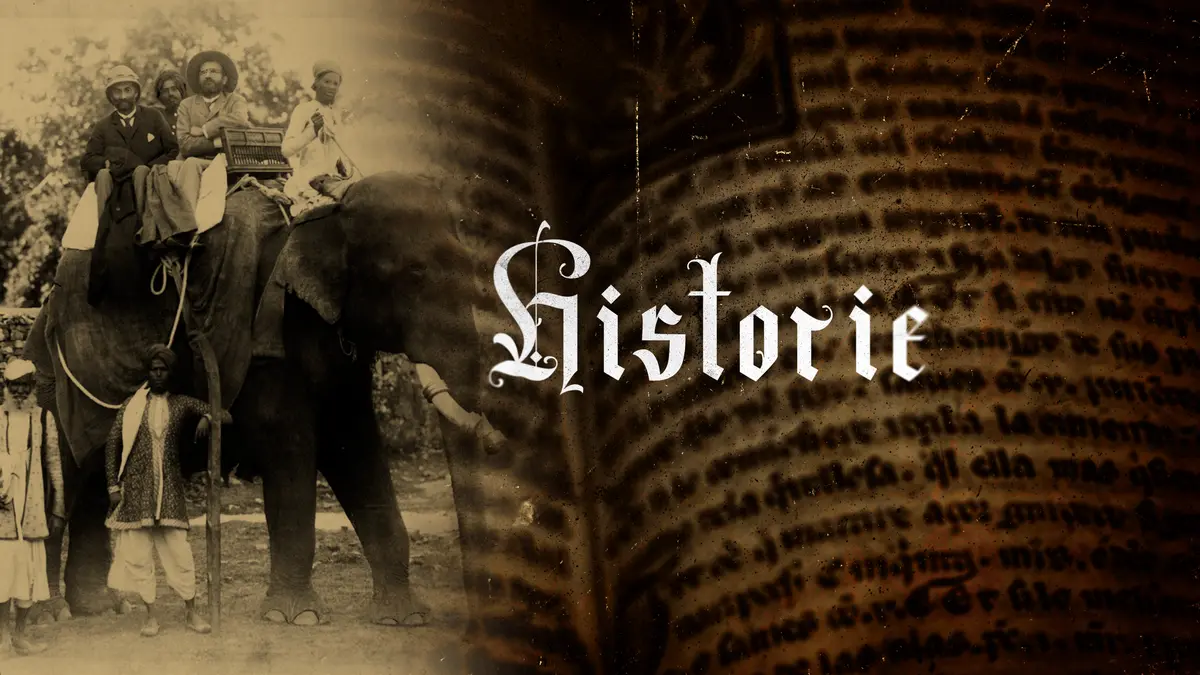Forty-six-year-old Kořenský, unlike the book hero Phileas Fogg, is not in a race against time. The purpose of his journey was not to win bets, but to bring Bohemia closer to the world. Moreover, he was heading in the opposite direction. While Fogg traveled east, Kořenský went west in May 1893: to North America and then via Hawaii to Japan, China, Malaysia, India, and Egypt.
At the Náprstek museum, she still keeps a diary of her travels that reveals her optimistic nature, her sense of natural and feminine beauty, and the fact that a traveler needs a little bit of happiness: a refreshing shower after a long day and toilet paper in the toilet.
It wasn’t until the late 19th century that it was actually possible to circumnavigate the globe in less than a quarter of a year. This was made possible by political changes in Asia, the expansion of the British Empire and the Industrial Revolution, particularly the development of railroads and shipping.
While the world is developing dynamically, the Czechs keep their distance from anything that deviates from tradition. After the Austro-Hungarian settlement of 1867, from which they were abandoned, they traversed a complex path of self-awareness and sought the roots of national identity. They looked beyond the unknown horizon in disbelief.
Photo: National Museum – Náprstkovo . Museum
Josef Kořenský really likes aponko.
The free-spirited patriot Vojta Náprstek realized the provincial nature of the country and tried to change it. At his home U Halánk, Palack, Rieger, Purkyn, Tyr, Němcová and Masaryk, as well as a whole generation of Czech travelers, gathered for Sunday’s feast. Among them was the teacher – and later director – of the girls’ school in Smích, Josef Kořenský.
A burly beard teacher, pianist, violinist and cellist, he won friends with his cheerful nature and played at parties. He used to be a popular guest in Náprsků. However, expensive trips around the world are made possible not by the charm of his personality, but by his abilities and knowledge. He speaks German, English and French very well, what’s more, he uses his qualifications in natural history, geography, physics and surveying to explore the world.
What is a podcast and why don’t you call it Czech?
Podcasts is a recording of the spoken word placed on the Internet where anyone can play it. The advantage of podcasts over radio broadcasts is the possibility to listen to your favorite programs anytime and anywhere. If you’re on your way to work, on vacation, or don’t want to spend the night staring at the TV, all you’ll need is your phone, ideally headphones. The English word podcast comes from a combination of the words iPod and broadcast, there is no established equivalent in the Czech language.
Novinky has also been publishing podcasts since last year.
He set out for a perfectly prepared voyage by studying specialist literature, facts and detailed itineraries complemented by 0 currency conversions, basic vocabulary, sailing distances and maps.
He was not a great explorer, his friends nicknamed him the “hotel traveler”. He visited famous tourist spots. However, visitors are convinced that his trip will still have significant benefits: he supplies his museum and school cabinet with various exhibitions, conducts lectures, writes travel notes, articles for magazines, and makes a significant contribution to broadening the horizons of Czech society over time.
The enlightened “vampire” Ulrich
History
The Man Who Eats Everything – The Story of the Greatest Eater of All Time
History
Kořenský was able to enjoy his travels well and he was certainly no stranger to worldly pleasures. But he was also a great observer who was able to capture the atmosphere of the little-known countries of the Czech Lands.
What attracted him to the Wild West, what fascinated him about women in Japan (as it was called at the time) or what surprised him about Southeast Asia? You’ll learn all of this in our podcast dedicated to the stories of known and unknown history.

“Unapologetic social media guru. General reader. Incurable pop culture specialist.”







